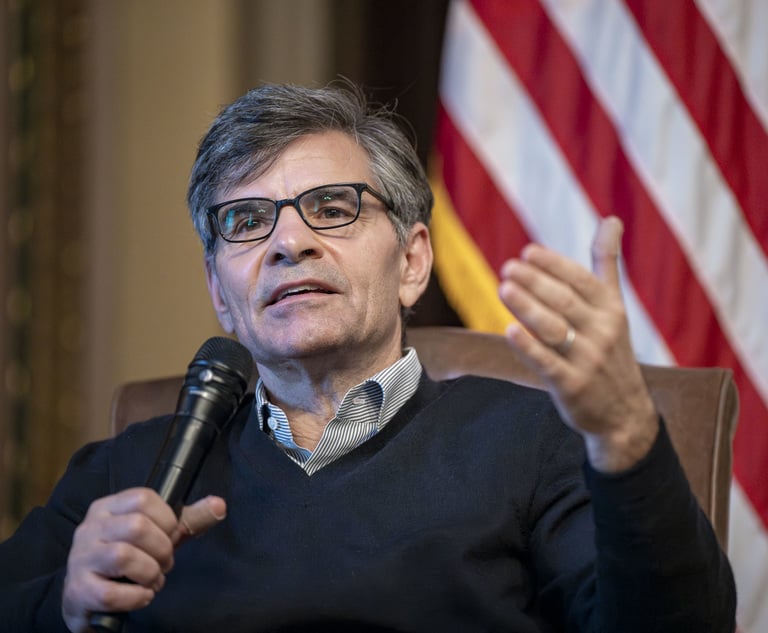 Paycheck Protection Program application. Credit: G.Tbov/Shutterstock.com
Paycheck Protection Program application. Credit: G.Tbov/Shutterstock.com New PPP Rules Benefit Self-Employed Individuals
This article discusses PPP rules in a new Interim Final Rule and in new Frequently Asked Questions. The New IFR and New FAQ account for changes made to the PPP by the Consolidated Appropriations Act, 2021, and incorporate directives by the Biden Administration to create greater available PPP funds for self-employed Schedule C filers by permitting the calculation of PPP loan amounts to be based on gross income rather than net earnings.
April 20, 2021 at 11:30 AM
9 minute read
Last year, self-employed individuals who conducted their business without any employees could qualify for a Paycheck Protection Program (PPP) loan in an amount equal to approximately 20.8% (2.5 months divided by 12 months) of their 2019 annual net earnings from self-employment not to exceed $100,000, or no greater than $20,833 (20.8% of $100,000 capped). Since the calculation of net earnings for self-employment is conducted after deductions for fixed and other business expenses that a small business must cover to stay afloat, annual net earnings from self-employment can often be a very small number resulting in an extremely small PPP loan amount. For example, annual net earnings from self-employment of $5,000 would qualify for a PPP loan of just $1,042 (20.8% of $5,000).
This content has been archived. It is available through our partners, LexisNexis® and Bloomberg Law.
To view this content, please continue to their sites.
Not a Lexis Subscriber?
Subscribe Now
Not a Bloomberg Law Subscriber?
Subscribe Now
NOT FOR REPRINT
© 2024 ALM Global, LLC, All Rights Reserved. Request academic re-use from www.copyright.com. All other uses, submit a request to [email protected]. For more information visit Asset & Logo Licensing.
You Might Like
View All

Government Attorneys Are Flooding the Job Market, But Is There Room in Big Law?
4 minute read

Trump, ABC News Settlement in Defamation Lawsuit Includes $1M in Attorney Fees For President-Elect
Law Firms Mentioned
Trending Stories
- 1It's Time To Limit Non-Competes
- 2Jimmy Carter’s 1974 Law Day Speech: A Call for Lawyers to Do the Public Good
- 3Second Circuit Upholds $5M Judgment Against Trump in E. Jean Carroll Case
- 4Clifford Chance Hikes Partner Pay as UK Firms Fight to Stay Competitive on Compensation
- 5Judicial Conduct Watchdog Opposes Supreme Court Justice's Bid to Withdraw Appeal of Her Removal
Who Got The Work
Michael G. Bongiorno, Andrew Scott Dulberg and Elizabeth E. Driscoll from Wilmer Cutler Pickering Hale and Dorr have stepped in to represent Symbotic Inc., an A.I.-enabled technology platform that focuses on increasing supply chain efficiency, and other defendants in a pending shareholder derivative lawsuit. The case, filed Oct. 2 in Massachusetts District Court by the Brown Law Firm on behalf of Stephen Austen, accuses certain officers and directors of misleading investors in regard to Symbotic's potential for margin growth by failing to disclose that the company was not equipped to timely deploy its systems or manage expenses through project delays. The case, assigned to U.S. District Judge Nathaniel M. Gorton, is 1:24-cv-12522, Austen v. Cohen et al.
Who Got The Work
Edmund Polubinski and Marie Killmond of Davis Polk & Wardwell have entered appearances for data platform software development company MongoDB and other defendants in a pending shareholder derivative lawsuit. The action, filed Oct. 7 in New York Southern District Court by the Brown Law Firm, accuses the company's directors and/or officers of falsely expressing confidence in the company’s restructuring of its sales incentive plan and downplaying the severity of decreases in its upfront commitments. The case is 1:24-cv-07594, Roy v. Ittycheria et al.
Who Got The Work
Amy O. Bruchs and Kurt F. Ellison of Michael Best & Friedrich have entered appearances for Epic Systems Corp. in a pending employment discrimination lawsuit. The suit was filed Sept. 7 in Wisconsin Western District Court by Levine Eisberner LLC and Siri & Glimstad on behalf of a project manager who claims that he was wrongfully terminated after applying for a religious exemption to the defendant's COVID-19 vaccine mandate. The case, assigned to U.S. Magistrate Judge Anita Marie Boor, is 3:24-cv-00630, Secker, Nathan v. Epic Systems Corporation.
Who Got The Work
David X. Sullivan, Thomas J. Finn and Gregory A. Hall from McCarter & English have entered appearances for Sunrun Installation Services in a pending civil rights lawsuit. The complaint was filed Sept. 4 in Connecticut District Court by attorney Robert M. Berke on behalf of former employee George Edward Steins, who was arrested and charged with employing an unregistered home improvement salesperson. The complaint alleges that had Sunrun informed the Connecticut Department of Consumer Protection that the plaintiff's employment had ended in 2017 and that he no longer held Sunrun's home improvement contractor license, he would not have been hit with charges, which were dismissed in May 2024. The case, assigned to U.S. District Judge Jeffrey A. Meyer, is 3:24-cv-01423, Steins v. Sunrun, Inc. et al.
Who Got The Work
Greenberg Traurig shareholder Joshua L. Raskin has entered an appearance for boohoo.com UK Ltd. in a pending patent infringement lawsuit. The suit, filed Sept. 3 in Texas Eastern District Court by Rozier Hardt McDonough on behalf of Alto Dynamics, asserts five patents related to an online shopping platform. The case, assigned to U.S. District Judge Rodney Gilstrap, is 2:24-cv-00719, Alto Dynamics, LLC v. boohoo.com UK Limited.
Featured Firms
Law Offices of Gary Martin Hays & Associates, P.C.
(470) 294-1674
Law Offices of Mark E. Salomone
(857) 444-6468
Smith & Hassler
(713) 739-1250






